Leukaemia: how a cancer diagnosis destroyed the sporting dreams of Asian Games beach volleyball duo
- When Hongkonger Kelvin Lau felt dazed and struggled to stand up during a match at the 2018 Asian Games, he and his partner knew things weren’t right
- The diagnosis hit especially hard as the amateur athletes, who had fought against the odds and been self-funded for years, had finally hit the big time

Wong Pui-lam and Kelvin Lau Tsz-ho were nervous as they stepped onto the scorching sand of Indonesia’s JSC Beachball Arena at the Asian Games in Palembang last August.
The beach volleyball duo from Hong Kong had fought against all odds to come this far. Success at the Asian Games, which happen every four years, had always been their ultimate goal – everything they had worked for.
But something was not right.
Lau had been feeling unwell on his way to Indonesia and now on the field, he was starting to feel dazed. Wong suggested swapping positions, so Lau could take the less demanding position of defender in the backcourt area, while he played blocker at the net.
During one point, Wong sent the ball high up into the air for his partner to hit. But when he turned around he saw that not only had Lau missed the ball but he was bent over, hands on his knees. “That’s when I knew – something was really wrong,” Wong says.
They lost to their opponents, the home team. Afterwards, the Hong Kong team’s doctor checked Lau and discovered he had a raging fever. With furrowed brows, he told them: “It could be an infection or a heart problem. There are many possibilities.”
A blood test at the local hospital uncovered an anomaly in Lau’s white blood cell count, and unusually low levels of haemoglobin and platelets. The doctor would not give a firm diagnosis, but urged him to return home for a more comprehensive check-up.
“My English was not very good, but I caught the word ‘cancer’,” says Wong, who still had not realised how serious Lau’s condition was and thought the doctor might have made a mistake. Reality only set in when the doctor issued an ultimatum: “If he doesn’t go, he might die.”
The statement weighs so heavily on Wong’s heart that even months later the 27-year-old has trouble repeating it, lowering his voice to a whisper as he recalls the moment. Lau, however, remains exceptionally calm. “Well, there’s nothing you can do but to accept it anyway,” the reticent 24-year-old explains.
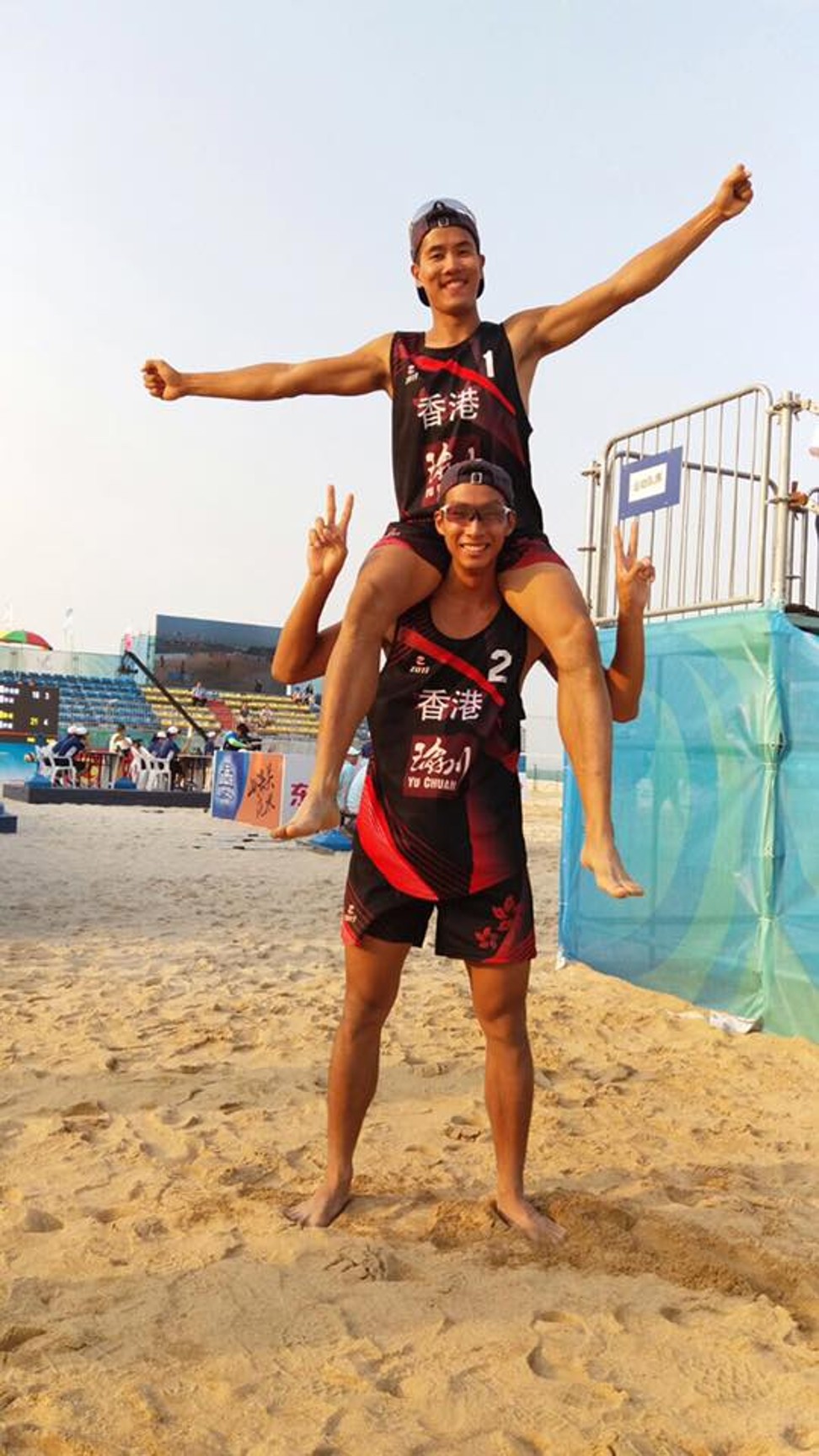
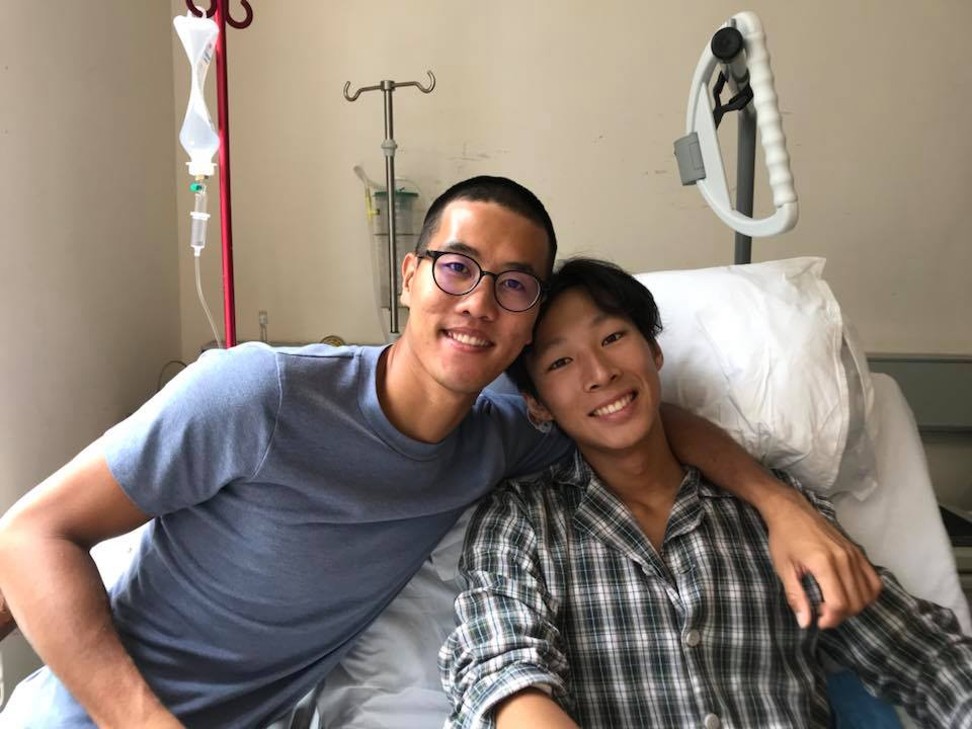
At the time, though, neither knew how to react. Wong packed their bags and they flew back to Hong Kong, where a waiting ambulance took Lau to Queen Mary Hospital. Lau’s lingering suspicion was confirmed – he had leukaemia, a condition in which the bone marrow produces too many abnormal white blood cells, which usually help to ward off infections.
Both Wong and Lau took up volleyball in high school as a hobby. They came across each other while studying at a vocational school and began partnering in 2014, setting their sights on the Asian Games.
As amateur athletes, they worked hard to fund their dream. Both coached volleyball at schools and work as online fitness trainers for extra cash (“He woke up at six to do that!” Wong exclaims about his teammate). The pair trained at night and all through the weekends, spending hours on the beach enduring punishing heat in summer and chilling cold in winter. “Just a few minutes on the sand, and your feet would be numb from the cold,” Wong says.
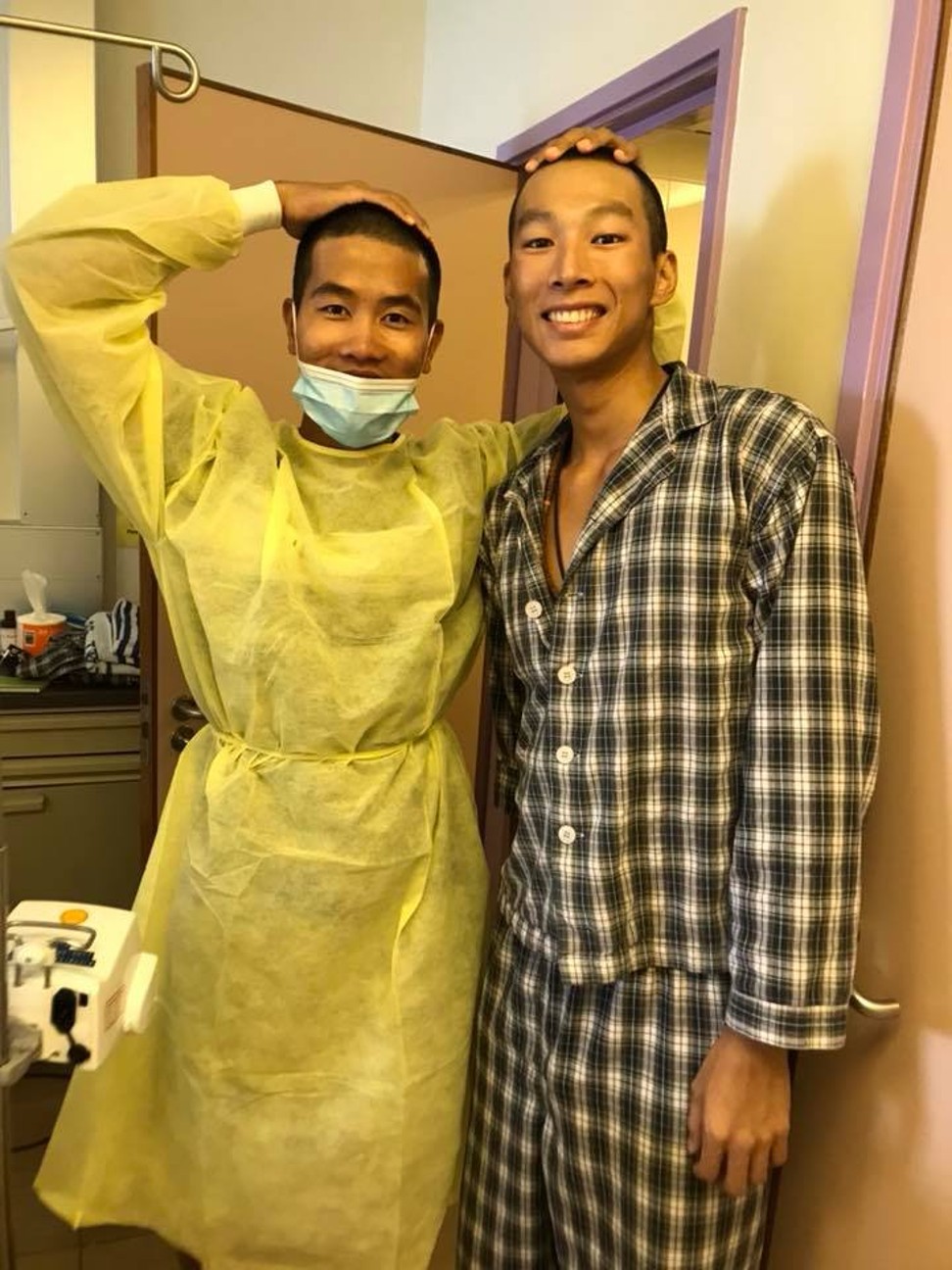
Without extra funding, they kept to a frugal budget for their trips to more than a dozen national and regional competitions each year. They ordered the cheapest meals on restaurant menus and sometimes spent more than 20 hours on a train to get to a competition.
“The biggest expense was flight tickets. So to get the lowest fare, we would opt for the worst times, arriving late at night and having to spend the night at the airport,” Wong says.
Those were some of the toughest – but in hindsight, also happiest – days in their career. “We were just glad to be there. And if we won, that’s something extra,” Wong says.
Their achievements saw them meet the qualifications to become elite athletes under the Hong Kong Sports Institute’s Sports Scholarship Scheme in March last year, allowing them to train and compete full time.
Now I would be satisfied with just a casual game with him on the field
However, as they got closer to their goal, Wong became increasingly unnerved. “We’d gotten so far, we couldn’t afford to lose. I couldn’t imagine going back.”
Overwhelmed with doubt, Wong became harsher on himself as well and his partner. Once, he threw an angry fit during a competition and received a red card, as well as a US$500 fine. Another time, he admitted to Lau that he couldn’t see a future in volleyball and didn’t believe they could achieve anything.
“Even though I said something so hurtful, he told me he still believed in me,” Wong says.
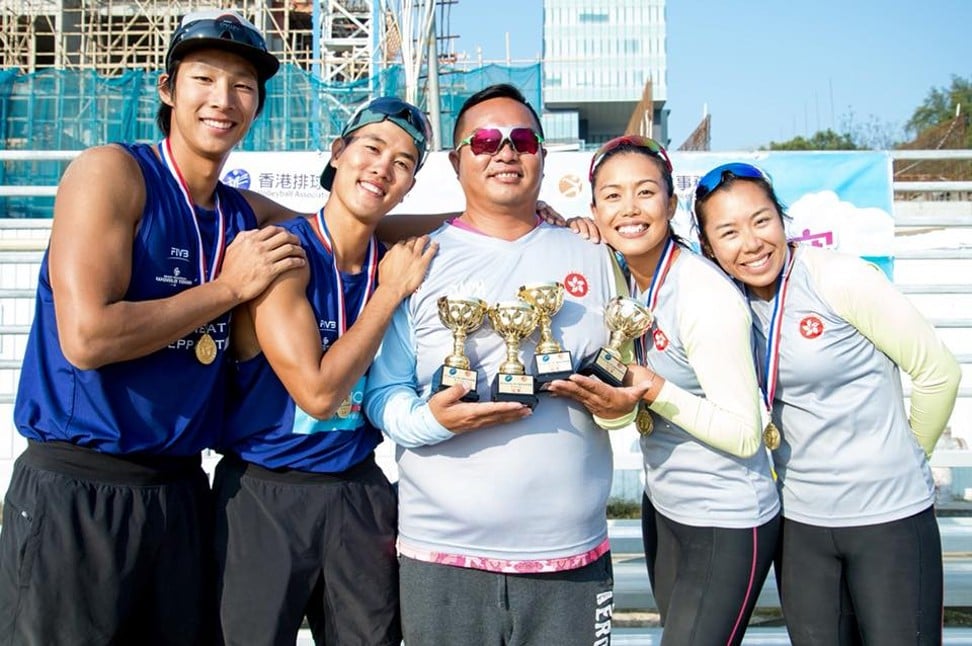
The turning point came when Wong returned from an argument with their coach, only to find Lau in tears. “I told myself I couldn’t continue like that,” he says.
Remembering their early days and their dreams of volleyball success, he adopted a more positive attitude. “Then this happened,” says Wong of Lau’s illness, fighting back tears.
It came as such a huge blow to both. They had put heart and soul into the sport to reach a near pinnacle, then had to walk away from the game of their lives.
“I only want a second chance. But I can’t change now even if I want to,” Wong says.
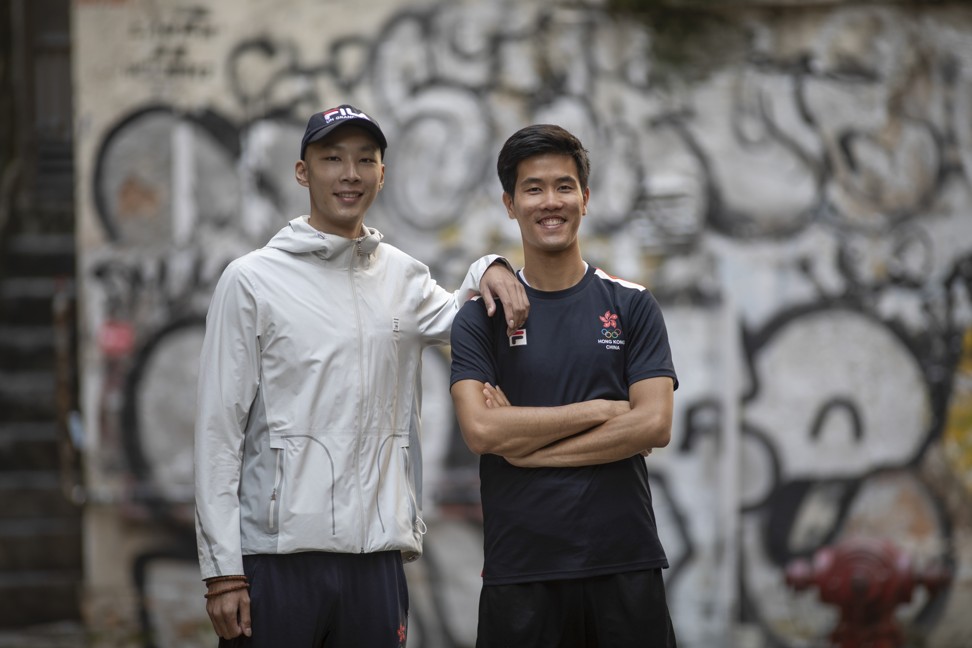
Eight months and five rounds of chemotherapy later, Lau is now in remission. In February, he received a bone marrow transplant from his elder sister, who was fortunately a matching donor.
“It feels like a kiwi,” he says as he rubs his the newly sprouted hair on his head. In solidarity, Wong has also shaved his head.
Lau is recovering well and appears positive despite his circumstances. But the treatments have taken a physical toll.
“You feel useless, especially remembering how fit you were and then being like this. Once after a treatment, I was not even able to walk a single flight of stairs,” he recalls. Equally difficult was the lengthy hospital stay that seemed to never end.
He has regained some of his strength, but is still far from the agile, hardy athlete he used to be. A short walk across Causeway Bay under the sun leaves him panting from exertion and he constantly wears a mask to avoid infections, which he is prone to, due to a weakened immune system.
His doctor has advised against trying to become a professional athlete. “Even if I play, I have to do it indoors since I cannot be exposed to the elements,” Lau says. He longs to be back in action, but for now he dares not hope for too much.
Wong has also adjusted his expectations. He had initially postponed plans to join the disciplinary forces in the faint hope that they could make a return to the next Asian Games, “but now I would be satisfied with just a casual game with him on the field.”
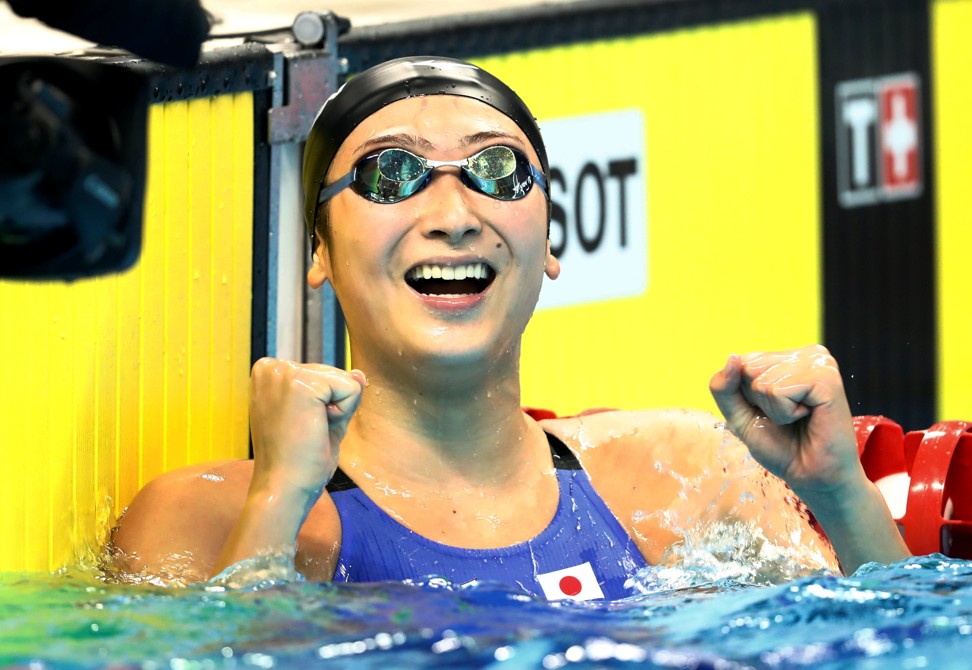
What you need to know about leukaemia and how to treat it
Earlier this year, young Japanese swimming star Rikako Ikee shocked the world after being diagnosed with leukaemia. The 18-year-old holds several national records and was expected to be a major contender at the 2020 Olympics in Tokyo. In March, she tweeted that battling the disease was “tens, hundreds and thousands of times harder than I thought”, but announced in a later post that she would not give up on the upcoming games.
Leukaemia is a cancer of the blood or bone marrow. It is the 13th most common cancer worldwide, with 437,033 new cases diagnosed in 2018, according to the World Cancer Research Fund. It can occur at any age and is the most common paediatric cancer.
Symptoms include swelling in the stomach, which is the result of leukaemia cells collecting in the spleen and liver; enlarged lymph nodes, typically in the armpits, groin and neck; extreme fatigue; and bone and joint pain.
In most cases, the diagnosis is confirmed with a bone marrow biopsy.
Treatments include targeted therapy, radiation therapy and chemotherapy, in which a combination of drugs is used to kill the tumour cells. Another is a bone marrow transplant – more often called a stem-cell transplant – in which healthy stem cells are used to replace damaged ones.
The prognosis depends on factors such as age, the type and extent of the disease, and the influence of treatment. According to data compiled by China’s National Central Cancer Registry in 2012, the mortality rate for leukaemia is 3.85/100,000.
Want to be a hero and potentially save a life? Register as a marrow donor at the Hong Kong Bone Marrow Donor Registry. All you have to do is donate a blood sample at centres managed by the Hong Kong Red Cross Blood Transfusion Service.